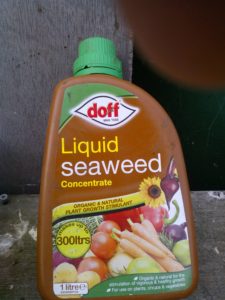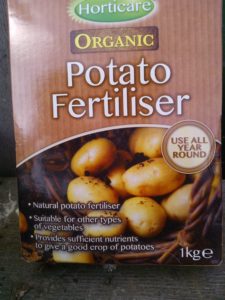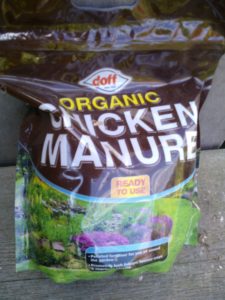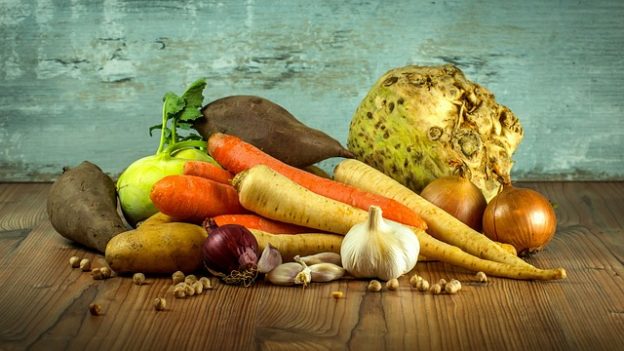As you know if you follow my posts, I like to grow my food organically. That doesn’t mean I don’t use fertilizer, I do but obviously I use organic fertilizer. So with that in mind I thought I would share with you the various feeds etc… I use on my plot. So how to help plants grow organically.
How to help plants grow organically
All plants need feeding at some point during their growing cycle. I usually feed mine when either they are in flower or, in the case of brassicas, when they look slightly off colour.
The only vegetables that I don’t fertilize are root vegetables, I don’t usually even water root vegetables unless we are in a drought apart from potatoes to improve their size.
What I use and when
When planting out squashes I always add well rotted manure or compost to the hole that the plant is going into. Then as the squash plant starts to produce both male and female flowers I feed once a week with comfrey plant food.
If you don’t have access to comfrey tea you can use tomato fertilizer and there are some good organic types available with prices starting from around £ 3.00 for a litre bottle.
This can be used on all squashes including:-
- Winter squashes
- Summer squashes
- Cucumbers
And can also be used on :-
- Tomatoes
- Peppers
- Aubergines
- Chillis
- Beans
Again use once a week as soon as the plants start to produce flower.
What To Use To Fertilize Brassicas

seaweed fertilizer
When growing brassicas organically you should treat the soil at the end of the season, before planting them, I add well rotted manure or compost to the soil and then early in spring I add garden lime.
Then once I’ve planted out my brassica plants all they get is good old H2O, water. Unless they seem to be struggling, having their leaves yellowing or just not growing at a steady rate – then I give them a boost with seaweed fertilizer.
Seaweed fertilizer is quite strong stuff so you don’t use much but the boost it gives to your plants is incredible.
If you are lucky enough to have access to a beach and you can get some fresh seaweed it can be used as a soil improver, added to compost piles, or used as a mulch, although it is salty there is usually not enough salt to harm your plants or taint your soil. If however you don’t feel comfortable with this you can hose it down before you use it.
If you can’t get your own, organic seaweed fertilizer is reasonably cheap around £ 2.50 for a litre.
What Organic Fertilizer To Use On Potatoes

Potato fertilizer
Again the soil should be prepared at the end of the previous season and given time to settle. Then when planting potatoes I add a layer of well rotted manure and place the seed potato on top then bury it. this has two benefits, firstly potatoes are a hungry crop so the nutrients in the manure give the potato a boost as it is starting to grow, secondly poatatoes grow bigger the more water they get so the manure will act as a reservoir and hold water around the roots.
I add an organic potato fertilizer which I can get in my local pound shop. It’s a dry pelletted fertilizer and I just sprinkle it by hand to keep the plants fed and healthy whilst they are putting on growth. Another good food for potatoes is comfrey.
Comfrey helps to prevent potato scab, I pick leaves and use them as mulch around my potato plants and I add the leaves to the soil in the autumn before I plant the potatoes in spring. The leaves can also be placed under the seed potato when planting.
General Organic Fertilizer

chicken manure
The only other fertilizer I use is chicken manure pellets these are also available reasonably cheaply about £2.00 for 3 kgs and give most plants a lift. I add them to the soil when planting and sprinkle some around the plants. As they are pellets they slowly release nutrients into the soil over a period of time.


Nice info…thanks for sharing!!!
Thanks Mani glad you like it.